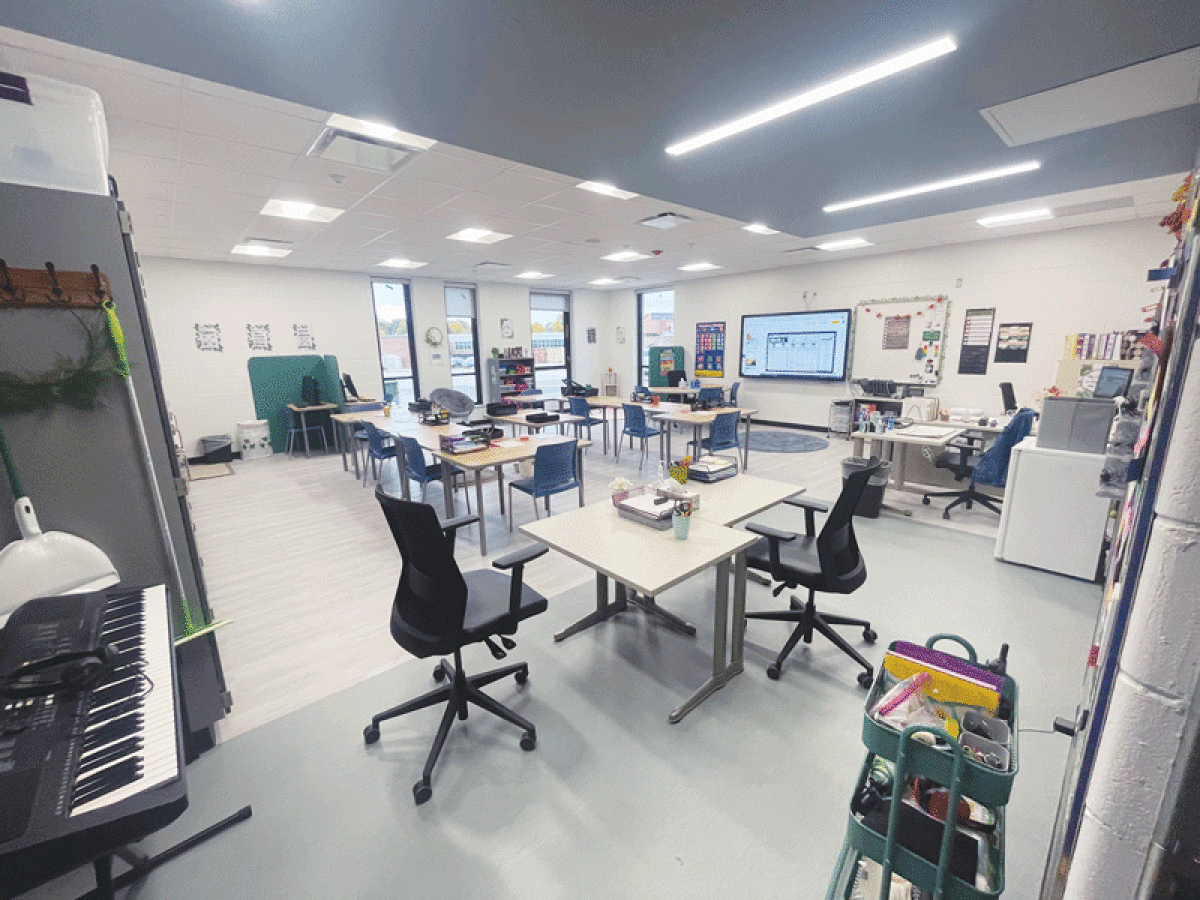BIRMINGHAM — After two years, the renovation work to the Birmingham Adult Transition Program building has been completed. A formal ribbon cutting was held Oct. 25.
Students in the program are between 18 and 26 years old and have mild cognitive impairments, autism or other developmental disabilities. The program offers students a continued education, which helps guide them beyond high school.
Renee Ruiz, a special education supervisor for the district and the principal for the Adult Transition Program, said the new renovation “gives everybody a sense of pride in who we are, and people feel happy when they walk in the door.”
The renovations were made possible by the $195 million bond voted on by the community in March 2020.
The program was previously operating with much less classroom space and a lack of specialized spaces for students. The renovations have given teachers the opportunity to expand their curriculum in many ways, as well as give students the space they need.
“The facility that we had before, we all felt kind of like a hand-me-down or a leftover, and so starting off with that sense of pride when we walk in the door just changes the environment and changes the culture,” Ruiz said.
Some of the features in the new building include adaptive furniture, adjustable and dimmable lighting, and specialized rooms tailored to meet students’ needs.
“The space is unbelievable and opens up a ton of opportunities for our kids without them being on top of each other,” ASD teacher Vicki Kubus said.
There is now a community room, which is a place for students to eat and prepare food as well as do laundry. A studio apartment is attached to the community room, and students can practice life skills there.
“Something that our families have been asking for a while is more opportunity for our students to learn to cook and to learn to work safely in a kitchen, and we didn’t have the space to do that before,” Ruiz said. “Now that we do have the space, we have students who might bring all of their lunch materials for the week, keep it in the community room, and then they can prepare their own individual lunch daily.”
This kitchen space is also able to be integrated into the program’s curriculum. A sensory room has also been added, which provides a place for students to rest and use sensory equipment. The room was designed with autistic adults in mind. The other facility did not previously have a sensory room.
Small office spaces are now in the building, which gives therapists a space to work with individuals and small groups.
“We are just so grateful and appreciative that the district is looking out for this population,” Ruiz said.
 Publication select ▼
Publication select ▼






















